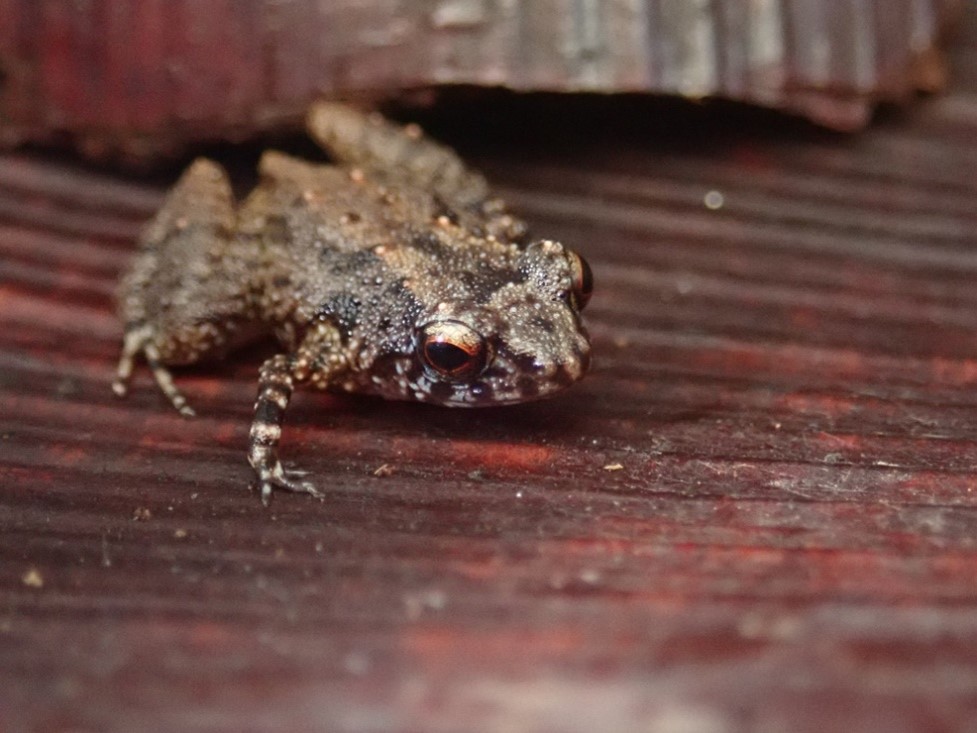Researchers at the Durrell Institute of Conservation and Ecology (DICE) with colleagues from the Natural History Museum and University College London (UCL) have found evidence of tropical frogs adapting to warming temperatures.
An international group of researchers including Professor Jim Groombridge at the Durrell Institute of Conservation and Ecology (DICE) and colleagues from the Natural History Museum and University College London (UCL) have found evidence of tropical frogs adapting to warming temperatures.
Evidence of the Seychelles frog (Sooglossus sechellensis)’s adaptation includes inhabiting lower elevations, and the same activity pattern as frogs on cooler islands despite the warmer temperatures. Yet the researchers warn that human-induced climate change still poses a huge threat to species’ survival.
The Seychelles frog is endemic to the islands of Mahé, Silhouette and Praslin in the Seychelles. Researchers focused on a population of Sooglossus sechellensis which – due to historic sea level rise – have been forced to inhabit the significantly warmer island of Praslin. Along with a warmer temperature, Praslin also lacks the high-elevation mist forest habitat that Sooglossus sechellensis inhabits on Mahé and Silhouette. With the population on Praslin having little to no opportunity to avoid the hotter climates, the researchers hypothesised that the population of frogs on Praslin must have adapted to survive in warmer environments than their closest living relatives and ancestors.
Tropical amphibians, particularly those that inhabit islands, are vulnerable to a warming climate due to a range of factors – they are ectothermic (their body temperature is regulated by the external environment) prone to desiccation and are often restricted to very specific areas.
Professor Groombridge said: ‘While frogs on Praslin have shown adaptions to a warmer climate, it is likely that this has occurred very gradually. We found that genetic evidence and differences in call characters even suggest that these frogs may have evolved into a new species.
‘Unfortunately, local extinction is still a likely outcome for tropical frogs in this rapidly warming world.’
Dr Jim Labisko, lead author of the study and Lecturer in Biodiversity at UCL, said: ‘With a rapidly warming climate, it’s really important to understand how different species respond to climate change. Our study provides evidence that vulnerable species (even little brown island frogs!) can adapt to warmer climates, but they may only be able to do so when warming is gradual and natural selection can occur over millions of years. That makes the current climate crisis a major concern as most species will not have millions of years to adapt to rapidly rising temperatures.’
Dr Jeff Streicher, Senior Curator in Charge, Amphibians and Reptiles at the Natural History Museum, said: ‘This population of frogs appear to have been able to adapt to a warming climate, even if this level of adaptation may have taken a long time. It’s exciting to think that this adaptive potential could also be present in other populations of climate-vulnerable organisms.’
Their research paper ‘Survival of climate warming through niche shifts: Evidence from frogs on tropical islands’ is published by Global Change Biology. doi: 10.1111/gcb.15997

